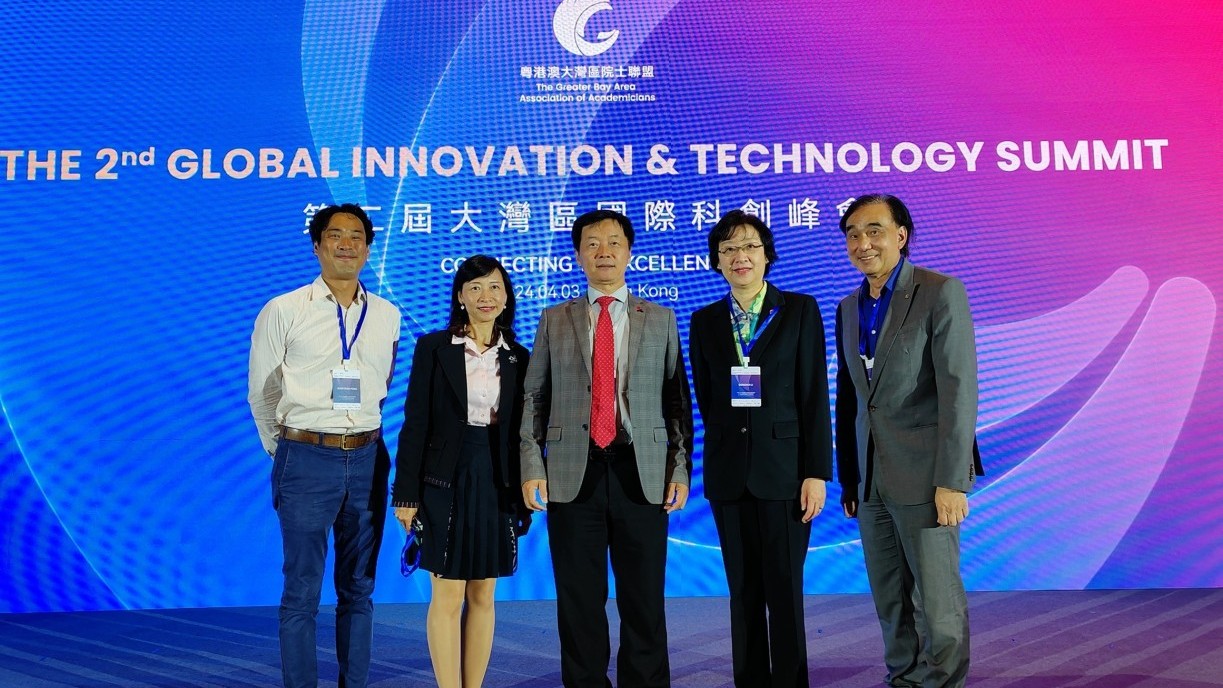Lingnan’s President S. Joe Qin attends the 2nd Global Innovation & Technology Summit and delivers keynote speech titled ‘Reimagining Higher Education in the Digital Era’
The 2nd Global Innovation & Technology Summit, hosted by The Greater Bay Area Association of Academicians, was held on 3 April. Prof S. Joe Qin, President of Lingnan University, was invited to attend and delivered a keynote speech titled "Reimagining Higher Education in the Digital Era". Taking Lingnan University as an example, President Qin said that the University has kept pace with the times and embraced artificial intelligence (AI) technology to enhance teaching and learning, having provided tools such as ChatGPT3.5, GPT 4.0, and GPT 4 Turbo to faculty members and students since July last year. Furthermore, Lingnan University has actively explored the integration of data science and AI into liberal arts education, aiming to cultivate graduates and faculty members with innovative thinking and critical discernment, thus maintaining an advantage in an AI-driven future. President Qin emphasised that leaders in higher education need to think about the educational models in the AI era, such as the potential replacement of skill-based education by AI in computer programming.
President Qin also participated in the "Greater Bay Area Universities Presidents’ Forum", sharing insights on the collaboration between higher education institutions in Hong Kong and the Greater Bay Area. He believed that Hong Kong's higher education institutions could contribute more to the development of the Greater Bay Area by bringing out their unique strengths. For instance, Lingnan University distinguishes itself by placing a strong emphasis on liberal arts education and prioritising a student-centered approach to learning. While liberal arts education is not commonly implemented in the Greater Bay Area and mainland China, Lingnan has made it a core component of its academic offerings. As a result, other universities in the region may be less familiar with this approach to education. President Qin suggested that higher education institutions in Hong Kong could promote liberal arts education as an important supplementary educational model in the Greater Bay Area and Mainland China. This would facilitate the cultivation of a diverse and innovative talent pool.
The 2nd Global Innovation & Technology Summit, in line with the Hong Kong Government's strategic initiative to develop the Northern Metropolis University Town, was a testament to the region's commitment to educational and scientific innovation. The Summit provided a crucial platform for communication and cooperation among university presidents and government officials from Hong Kong, Macao, the Mainland, and overseas. Its aim was to promote educational and scientific innovation cooperation across regions, aiming to establish the Greater Bay Area as a leading international education hub. This alignment with the government's vision further underscored the Summit's significance and potential impact on the region's educational landscape.




